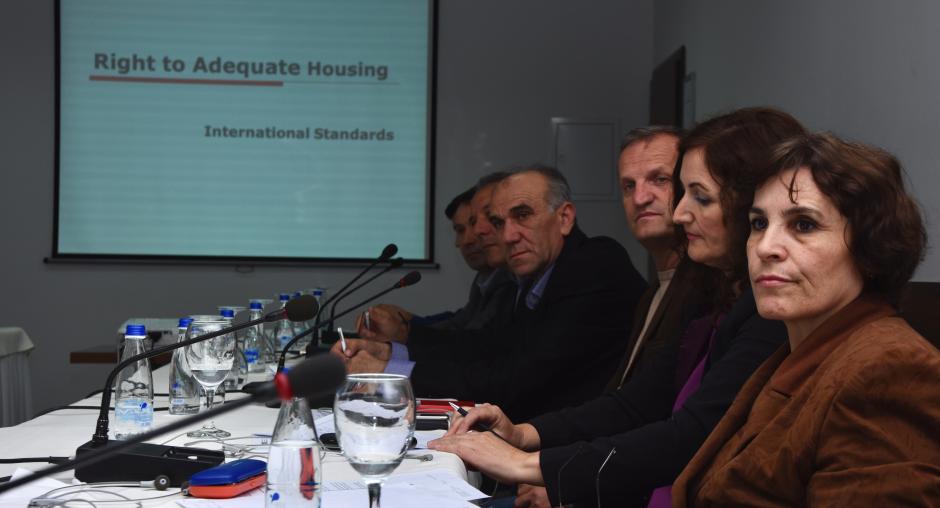OSCE Mission, municipalities in Kosovo work to improve social housing programmes

The last in a series of five training courses organized by the OSCE Mission in Kosovo and the Ministry of Environment and Spatial Planning for some 150 municipal officials responsible for social housing and drafting respective three-year plans concluded on 7 April 2017 in Prishtinё/Priština.
The courses, held in various locations throughout Kosovo, provided representatives of municipal social housing commissions, municipal officers for communities and returns (MOCR) and community representatives an opportunity to explore ways to improve social housing programmes and address delays in drafting three-year plans and appointing municipal social housing commissions.
They also discussed their legal obligations, best practices and inter-sectorial municipal co-operation, to better assist those in need. According to municipal figures, the number of applications for social housing varies from 250 to 550 per municipality.
“So far 17 out of 22 municipalities with established municipal social housing commissions have drafted and approved three-year social housing plans. These numbers should improve,” stated Barbara Rohmann, Director of the Human Rights and Communities Department at the OSCE Mission in Kosovo.
The training courses concluded with the elaboration of a set of recommendations. It was agreed that municipalities should draft their social housing programmes based on needs assessments and include MOCRs and communities throughout the process. They also agreed to fully adhere to the legal provisions while selecting beneficiaries and dealing with appeals procedures.
Participants agreed to take into consideration a gender perspective while selecting beneficiaries and preparing plans for social housing, and to submit financial requests to the Ministry of Environment and Spatial Planning in a timely manner.
The OSCE Mission is mandated with human and community rights protection and promotion, democratization and public safety sector development. Through tailor-based programmes and activities it supports institutions in addressing possible shortcomings and further improving their work.
